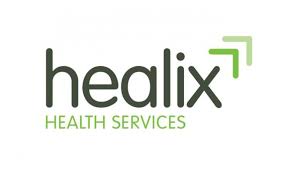What is chemotherapy?
Chemotherapy is an anti-cancer drug. There are many kinds of chemotherapies – some kill cancer cells outright, while others stop them from growing and multiplying.
In recent years, chemotherapy has seen significant improvements. Newer chemotherapies are more effective and are delivered to cells in smarter ways, making them easier for the body to tolerate compared to older chemotherapies.
When is chemotherapy used?
The use of chemotherapy depends on the type of cancer and its stage. Chemotherapy is particularly useful for treating cancer that has spread (metastatic or advanced).
Chemotherapy can destroy cancer cells, prevent the cancer from returning, or relieve symptoms if a cure isn’t possible. It can also be administered alongside other therapies, such as surgery and radiation, to enhance their effectiveness.
Chemotherapy for bladder cancer
- A combination of chemotherapy and radiotherapy can be effective against bladder cancer, offering an alternative or complement to surgery.
Chemotherapy for prostate cancer
- In high-risk prostate cancer, a combined approach of chemotherapy, hormone treatment, and radiotherapy can yield outcomes comparable to surgery. It may also be the best treatment option if your prostate cancer has spread to other parts of the body.
Chemotherapy for kidney cancer
- Chemotherapy is usually not used for kidney cancer because most cases are resistant to it. Our consultants utilise a full range of other treatments, including biological drugs and external beam radiotherapy, which can be effective against kidney cancer.
What to expect during chemotherapy
Chemotherapy can be administered in a few different ways. The main methods are through an intravenous (IV) drip or orally in tablet form.
Chemotherapy is usually given via an IV inserted into a vein in your arm or hand. A nurse will gently place a needle at the beginning of each session and remove it at the end. Sessions might last a few minutes or several hours.
Alternatively, you might have a catheter or port implanted that stays in place throughout your entire chemotherapy regimen. This can make treatment delivery easier, but you’ll need to take care of it carefully.
Most of the time, chemotherapy is administered in a hospital. Sometimes, a pump attached to your port or catheter will be used to deliver chemotherapy continuously over several days from your home.
Chemotherapy is usually given in multiple rounds, with breaks in between sessions to let your body recover. A full course of chemotherapy can take several months.
Risks of chemotherapy
While chemotherapy attacks cancer cells, it also inadvertently kills some healthy cells, leading to side effects. These can include:
- Fatigue
- Nausea and vomiting
- Hair loss
- Infections
- Sore mouth
- Dry, itchy skin
- Digestive issues like diarrhoea or constipation
Side effects can be challenging but usually subside once treatment ends. We can help alleviate some symptoms to make them easier to cope with.
When might chemotherapy not be the best option?
Some cancers respond better to chemotherapy than others. For instance, most cases of kidney cancer are resistant to it. In such cases, your doctor will recommend a different treatment path.
Your overall health and fitness level also play a significant role in determining whether chemotherapy is suitable for you. We’ll conduct a thorough check-up when creating your treatment plan.
It’s crucial for you and your doctor to consider the risks and benefits before making any treatment decisions.








